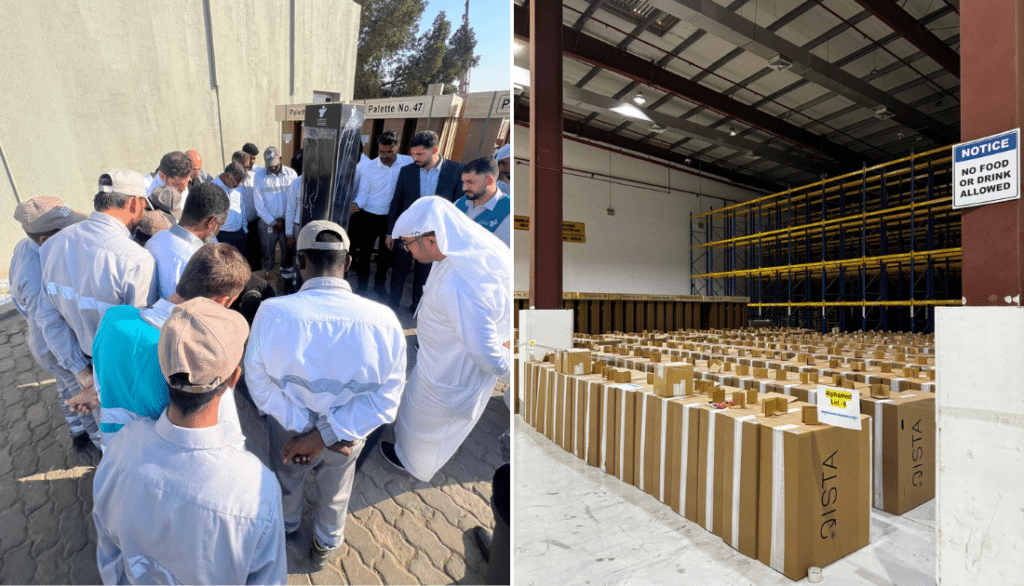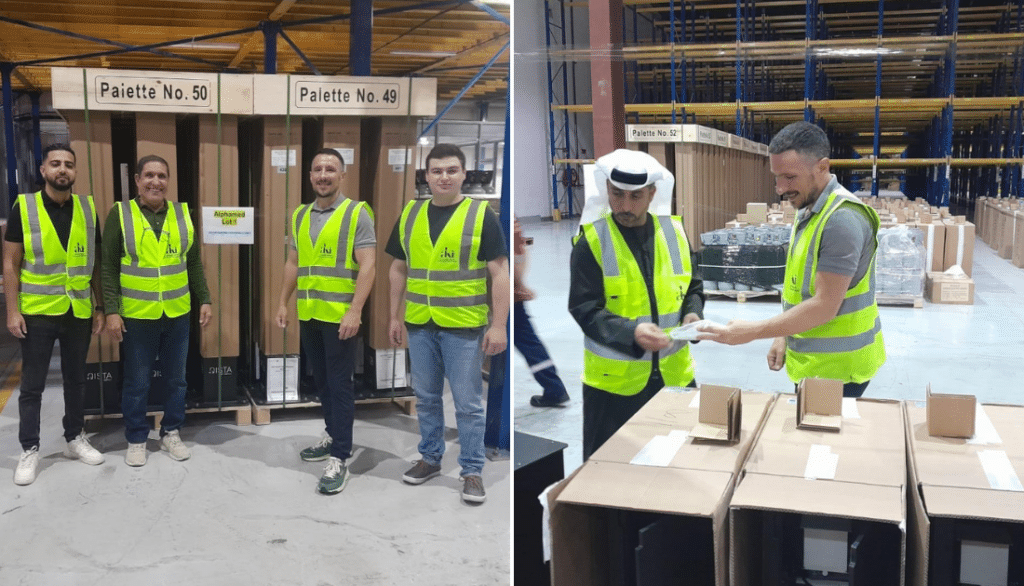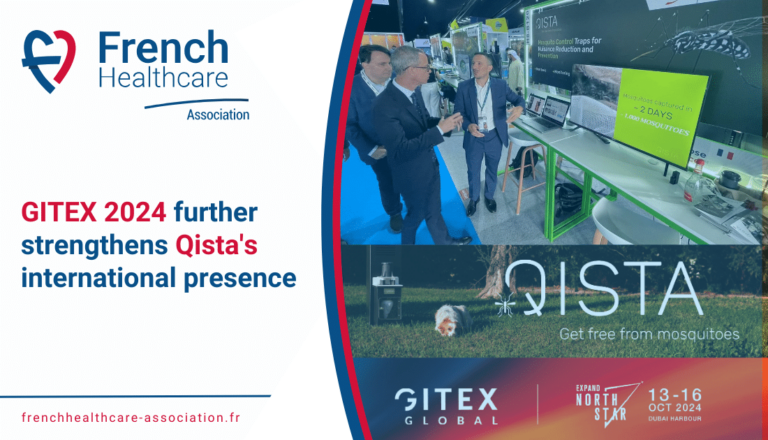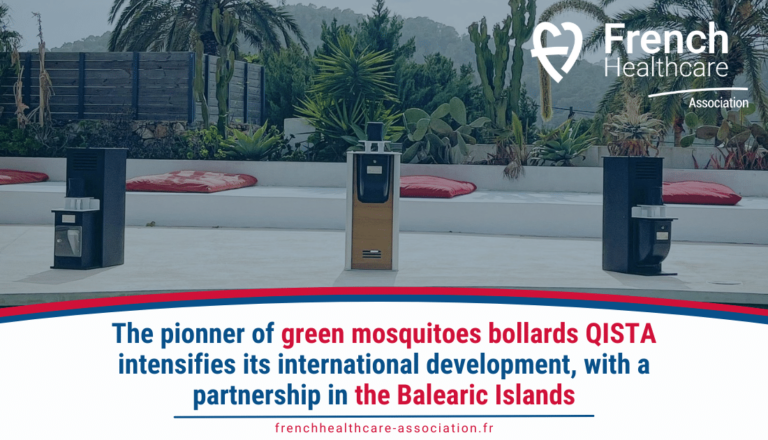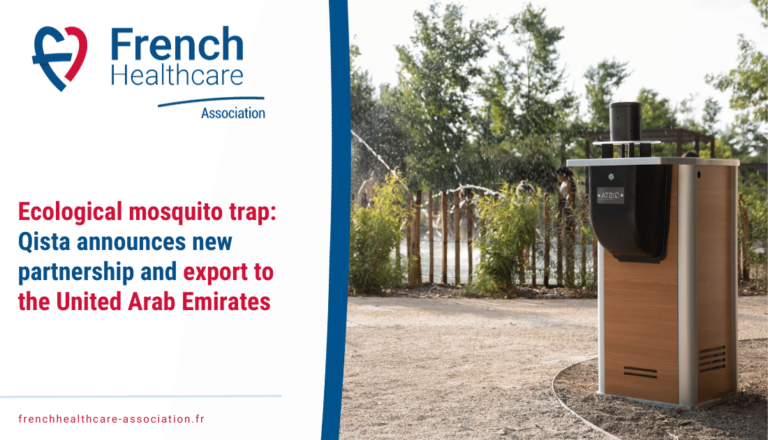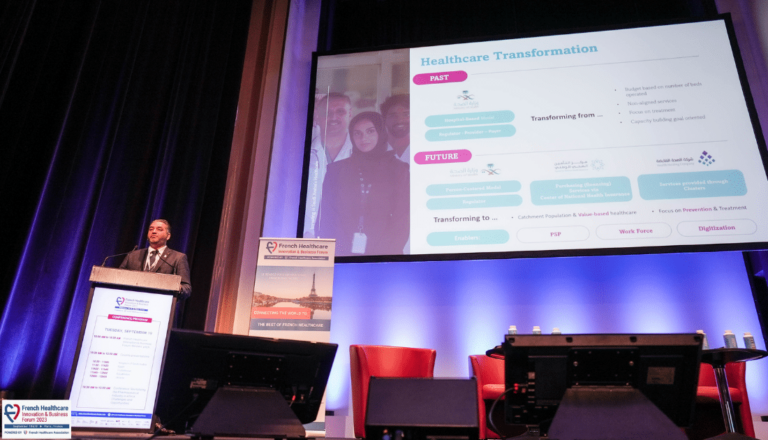QISTA continues its international expansion with the installation of 720 mosquito repellent machines in the United Arab Emirates. This strategic deployment makes the country the most equipped in the world with QISTA technologies, and testifies to the growing impact of these eco-responsible solutions on public health.
Exclusive anti-mosquito technology and customised support
As early as December 2023, Qista was already already announcing a major partnership with Al Khayyat Investments (AKI), a diversified Emirati conglomerate operating in the healthcare sector, among others. In February 2024, QISTA signed an exclusive contract with this major player in the UAE private sector, one of the 100 largest family businesses in the Arab world (Forbe, 2024). As a reminder, the Provençal company was also present alongside AKI for GITEX 2024, meeting top Emirati decision-makers.
This partnership has enabled QISTA to win two major tenders, demonstrating the relevance of its solutions to global health issues. The first project, for the government of Abu Dhabi, saw the installation of 520 kiosks of an exclusive model, developed in advance for the UAE (a figure well in excess of the 400 initially planned!). The second, for the city of Al Ain, added a further 200 machines. This deployment thus marks a major step in the export of French technology, strengthening QISTA’s position on the world market.
The models deployed in the Emirates and designed by Qista are equipped with solar towers and advanced systems for monitoring and analyzing mosquito populations, including artificial intelligence. These feats will significantly enhance the fight against mosquito-borne diseases such as dengue fever, malaria and West Nile virus, which are widespread in the region. The technology attracts mosquitoes by emitting recycled carbon dioxide and using an olfactory lure that mimics human body odor. Selective, it exclusively targets female mosquitoes, responsible for disease transmission. Once attracted, they are captured without the use of chemicals, guaranteeing a healthier approach for the environment and public health.
Pour garantir l’efficacité de ces installations, une équipe de QISTA a formé les techniciens locaux à la maintenance et à l’exploitation des machines. Ce soutien continu témoigne de l’engagement de QISTA à travailler main dans la main avec les autorités locales pour maximiser l’impact de ses solutions.
In February 2025, an official event celebrated the successful completion of this deployment, in the presence of authorities including the government’s director of pest control services and AKI’s head of environmental services, as well as Pierre Bellagambi, CEO of QISTA. An event that testifies to the importance of this project for the region, underlining the success of a fruitful collaboration between private companies and public players.
A public health breakthrough with strong roots in the UAE that can be exported wherever mosquitoes proliferate
In the United Arab Emirates, mosquitoes pose a real threat to public health, due to their ability to transmit serious diseases such as dengue fever, chikungunya, malaria and West Nile virus, spread by certain local species. To limit these risks, the authorities have launched a vast control campaign, eliminating several hundred outbreaks identified as proliferation points for mosquito vectors.
Fadi El Fakhouri, Head of Environmental Services at AKI: “The cooperation between the UAE authorities, QISTA and Al Khayyat Investment is a perfect example of how public and private initiatives can come together to tackle a major health challenge. Together, we have put in place an innovative solution that directly improves the daily lives of local residents, while at the same time being part of a sustainable development approach.”
As part of this strategy, QISTA machines have been deployed in a number of urban districts, with priority given to public living areas. In addition to enhancing the protection of residents, this solution significantly reduces the use of traditional insecticides such as deltamethrin, whose impact on human health and the environment is a cause for serious concern. This chemical is associated with neurological and endocrine disorders in humans, and poses a threat to biodiversity by affecting many non-target species.
Supported by strategic partnerships and strong local involvement, this project marks a new stage in the export of French know-how, and confirms QISTA’s determination to position itself as a benchmark player in sustainable mosquito control worldwide. On the strength of this success, the company’s eco-responsible model is being extended to an international market that is increasingly sensitive to sustainability issues. QISTA now aims to pursue its development in the Middle East, with projects under study in Saudi Arabia, Qatar and Bahrain, while also planning to establish a presence in Scandinavian markets, where the proliferation of mosquitoes is becoming a growing concern.
Pierre Bellagambi, QISTA CEO: “This project marks a decisive step for QISTA in the United Arab Emirates. Thanks to our partnership with Al Khayyat Investment and the support of the local authorities, we are deploying an innovative and sustainable solution to improve the living environment and reduce mosquito nuisance. This success illustrates France’s export expertise and our ability to provide sustainable, effective solutions beyond our borders. I would like to thank our teams in France and the Emirates, whose expertise and commitment have made this project possible. Together, we are proving that French technology has a concrete and positive impact internationally.”
QISTA’s success in the United Arab Emirates fully illustrates the company’s ability to offer innovative solutions to global health issues, while promoting French technological excellence. Through its devices, the company is demonstrating that French innovation can be a model in the fields of public health and environmental protection.
